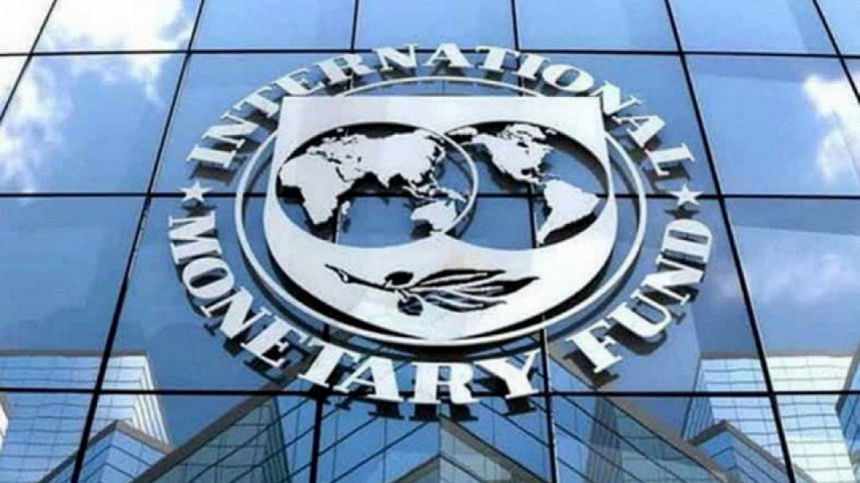IMF maintains 5.5pc growth forecast for Bangladesh

At this point, it is becoming apparent that GDP growth this year would not be hitting 6 percent, a feature in pre-pandemic years under the current Awami League-led government.
Yesterday, in its flagship World Economic Outlook, the International Monetary Fund maintained that growth would be at best 5.5 percent in 2023 and 6.5 percent next year.
This comes after the World Bank and the Asian Development Bank last week made growth forecasts of 5.2 percent and 5.3 percent respectively for this fiscal year, which ends on June 30.
The government though is maintaining the growth this fiscal year would be 6.5 percent.
Bangladesh though will be logging in the third-highest GDP growth in South Asia, behind only the Maldives (7.2 percent) and India (5.9 percent), as per the IMF's forecasts.
Sri Lanka's economy will contract by 3 percent and Pakistan's will grow at just 0.5 percent.
Inflation will average 8.6 percent this year -- bested only by the troubled South Asian neighbours Sri Lanka (15.2 percent) and Pakistan (27.4 percent) -- driven by rising domestic food and fuel prices and the pass-through of large taka depreciation.
The current account deficit -- a situation when imports exceed exports -- would narrow to 2.1 percent of GDP this year from 4.1 percent last year. However, next year, it will widen to 4.2 percent of GDP.
The current account deficit this year is similar to neighbouring India (2.2 percent) and Pakistan (2.3 percent).
"A robust economic recovery from the COVID-19 pandemic was interrupted by Russia's war in Ukraine. Rising global commodity prices, supply disruptions and slowing external demand have led to a sharp widening of the current account deficit, depreciation of the taka and a large decline in foreign exchange reserves," said the IMF staff report earlier this year prepared for the $4.7 loan programme.
While there is not a full-blown crisis, rising inflation, slowing economic activity, and strict austerity measures to deal with the shock are compressing demand, it said.
"The authorities have responded with stringent demand management measures."
The prices of fuel, fertiliser, gas and electricity were raised. In addition, the government has imposed transitory restrictions on some non-essential imports, slowed the implementation of import-intensive development projects, closed diesel-fuelled power plants, introduced rolling blackouts, reduced in-office hours, shortened the school week and introduced other measures to curtail energy demand.
"While these measures have suppressed import demand, exchange rate pressures remain high and foreign exchange reserves continue to decline, albeit at a slower pace. These demand control measures could prolong the ongoing hardships and will likely hurt both near-term growth and medium-term economic potential."
High inflation, while adding to economic uncertainty, will reduce consumer spending, it added.

 For all latest news, follow The Daily Star's Google News channel.
For all latest news, follow The Daily Star's Google News channel. 



Comments